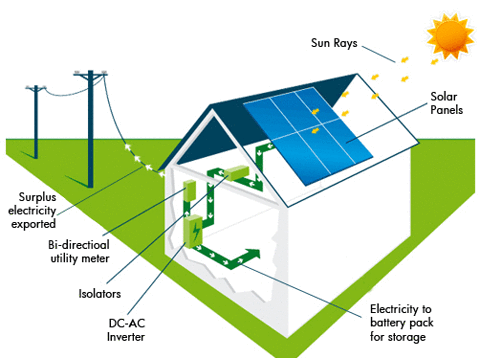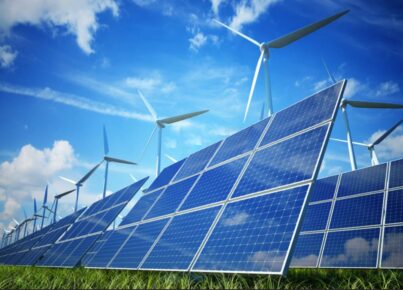Technology has dramatically changed our lives – from automatic coffee machines to GPS-enabled gadgets that allow us to record our every step. One of them is Solar energy. This blog post investigates the current development of solar energy and its potential future implications.
Introduction
Solar energy has been around since the beginning of time, but it is only recently that we have begun to harness its power. It is a clean, renewable resource that can generate electricity, heat homes and water, and power vehicles.
Solar Power is changing the way we live. It is powering homes and businesses, reducing our dependence on fossil fuels, and creating jobs in the solar industry. It will continue to transform our world with innovation and cost reductions.
Why Solar Energy? The Sky’s the Limit
Solar Power is becoming increasingly popular as a source of renewable energy. There are many reasons for this, but the most important is that it doesn’t release any pollutants into the environment.
Solar energy also has a minimal carbon footprint compared to other forms of energy generation. This means it’s much better for the planet in the long run.
Another significant advantage of solar power is that it’s very versatile. It can generate electricity, heat water, or even power entire buildings.
Finally, solar power is becoming more and more affordable as technology improves and gets cheaper. In some places, it’s already cheaper than traditional forms of energy generation, like coal or natural gas.
Advantages of Solar Energy
Aside from generating clean and renewable energy, solar power has several advantages that make it one of the most attractive energy sources available.
Solar energy is free once you have installed the initial equipment and solar panels.
It can generate electricity, heat water or air, and even power buildings. And as solar technology advances, the potential uses for solar energy are only increasing.
Solar panel systems can last for decades with little to no maintenance, so you will not have ongoing fuel or energy costs associated with traditional forms of energy generation.
Another advantage of solar power is that it is non-polluting. Unlike coal or natural gas power plants, which release harmful greenhouse gases into the atmosphere, solar panels produce no emissions when generating electricity. This means that switching to solar power can help reduce your carbon footprint and do your part to protect the environment.
With the ever-increasing energy cost and the negative environmental impact of traditional fossil fuel power generation, more and more homeowners are looking into solar power as an alternative.
Disadvantages of Solar Energy
1. It is not a reliable source of power. The sun only shines during the day, even when it’s not always sunny. Solar panels only produce electricity when the sun is shining. This means power cannot be used as a sole power source.
2. It is also less efficient than other forms of energy generation. Solar panels only convert a small percentage of the sunlight they receive into electricity, while coal and natural gas plants can convert up to 70% of their fuel into usable energy. This means more solar panels are needed to generate the same amount of power as a traditional power plant.
3. Solar Power is more expensive than other forms of energy generation. The cost of solar panels has fallen significantly in recent years, but they are still more costly than traditional forms of energy generation such as coal and natural gas. This means that solar energy generally costs more to produce, making it less affordable for many families and businesses

Sustainable Living: Off-Grid Solar System, Inverters, and Batteries
We usually think of rooftop solar panels when we think of solar energy. However, solar power can change our lives in many ways. One way is by using an off-grid solar system.
Off-grid solar systems are designed to provide power to a home or business that is not connected to the grid. This can be useful for people who live in rural areas or who want to be independent of the grid. Off-grid systems typically use batteries to store energy to be used when needed, even at night or during a power outage.
Inverters are also crucial for off-grid solar systems. They convert the DC power from the batteries into AC power that appliances and lights can use. Without aninverter, an off-grid system could not provide authority for AC power items.
Batteries are another crucial part of off-grid solar systems. They store the energy collected by the solar panels to use when needed. The type of battery you choose will depend on how much power you need to keep and how often you need to access it.
Lead acid batteries are standard for off-grid systems because they are relatively inexpensive and easy to find. However, they require maintenance and may not last as long as other batteries, such as lithium-ion batteries.
if you’re looking for a high-performance, long-lasting battery, consider using a LifePO4 battery.
LifePO4 batteries are a new type of lithium-ion battery that offers a longer lifespan and more excellent safety than traditional Li-ion batteries. LifePO4 batteries can last up to 10 times longer than conventional Li-ion batteries.
if you have a PV system already installed on your home, you can easily add battery storage to it and use the stored energy to power your home during a power outage or even sell it back to the grid.
Conclusion
Solar energy is a renewable resource that is constantly replenished by the sun. It is a sustainable energy source that can power our homes, businesses, and cities. Solar Power is not only good for the environment, but it also has the potential to change the way we live our lives. Solar power can reduce our dependence on fossil fuels, create jobs in the renewable energy sector, and improve our quality of life.





Pingback:The Huge Benefits Of Switching To Renewable Energy
Pingback:All You Need To Know About Solar Energy - Solar Energy Tek
Pingback:The Benefits of Investing in Renewable Energy - Buddies News
Pingback:Why You Are Not Ready for Solar Power - Deals1 Promo
Pingback:The Benefits Of Switching To Renewable Energy - Deals1 Promo
Pingback:How to Choose the Right Rooftop Solar System for Your Home
Pingback:A Closer Look At The Benefits Of 24V Vs 48V Solar Systems
Pingback:Carbon Footprint - Deals1 Promo
Pingback:The Best Wall Mountable Battery Backup Solutions For Solar Systems